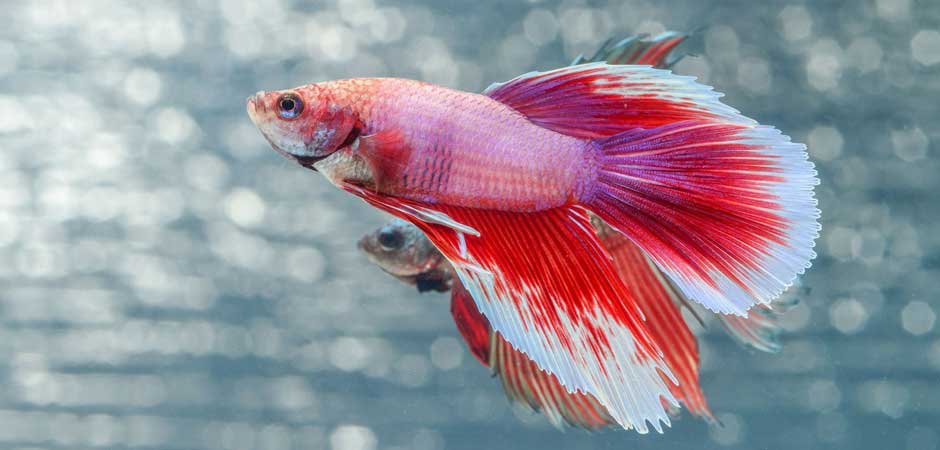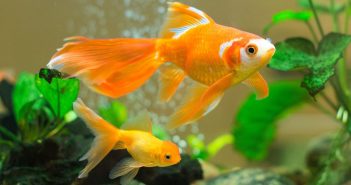Betta fish are considered to be one of the most beautiful and colorful water species of the world. Did you also know that they’re called the Siamese Fighting Fish? The male betta, in particular, has more vibrant and fascinating colors.
There’s a reason why so many people chose betta fish for their aquariums, am I right? Besides being bright and beautiful, they’re also quite entertaining to watch. So it’s only natural to desire a longer lifespan for your betta fish.
I’m going to discuss everything you need to know about providing a healthy and happy environment for your finned friend, so let’s get started helping your betta fish live longer!
1. Proper aquarium setup
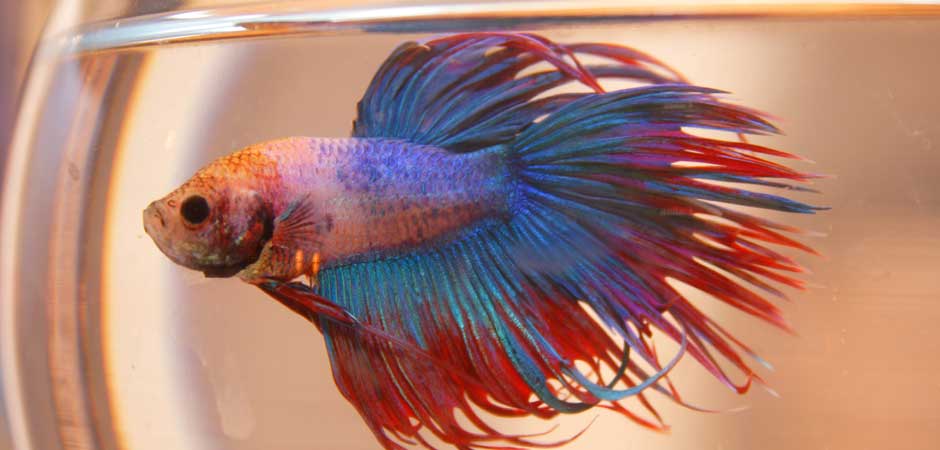
Photo credit: fishkeepingadvice.com
Everybody likes to keep their home clean. A clutter-free environment is essential, even in a betta fish tank. This contributes to keeping the fish healthy and happy.
With a betta, you don’t need the complicated, expensive, or big filtration system. The species tends to live a minimalist life. They are fond of their space and freedom, so avoid crowding the tank by using a lot of plants, figurines, or mini castles. Keeping it simple should be the priority.
When I say space, the size of the aquarium also comes to mind. Please make sure that the tank has a three-gallon water capacity for a single betta fish. This is the minimum requirement per fish. So if you’re planning to get many betta fish, then it’s best to buy a 10-gallon sized tank.
Also, let me discuss the factors to take into consideration for a proper aquarium.
- The tank should be either acrylic or glass.
- You can use either plastic or live plants.
- The gravel needs to have water-absorbing properties.
- Since betta fish enjoy a warm environment, don’t forget to add a heater.
- Betta treats and food, preferably bloodworms.
- Fish and water treatments.
Tank maintenance
When talking about maintenance, there’s nothing better for the job than an excellent filtration system. But that doesn’t mean getting one that’s complicated and too big to use. You should know that betta fish like stagnant water. This means whatever filtration system you choose should not produce excessive waves.
The next point of discussion is the temperature of the aquarium water. The optimal setting is somewhere between 75 and 82 degrees Fahrenheit. It should not be too cold or too hot.
As for the pH levels, keep that more than 6.8 and less than 7. The best thing to do at such times is to test the tank water before you submerge your precious betta into it. You can use tablets or additives to maintain the aquarium’s pH levels. Also, there are pH test kits for you to check the water once every week.
If you want your betta fish to live longer, you need to take these necessary steps. They might require you to make an effort, but it’s all worth it with these beautiful and colorful creatures.
There’s another important note that I would like to share here. Before placing items such as gravel, plastic plants, etc. in the tank; don’t forget to rinse them thoroughly. These products might contain chemicals, which are considered to be harmful tobetta fish.
3. Monitor betta health
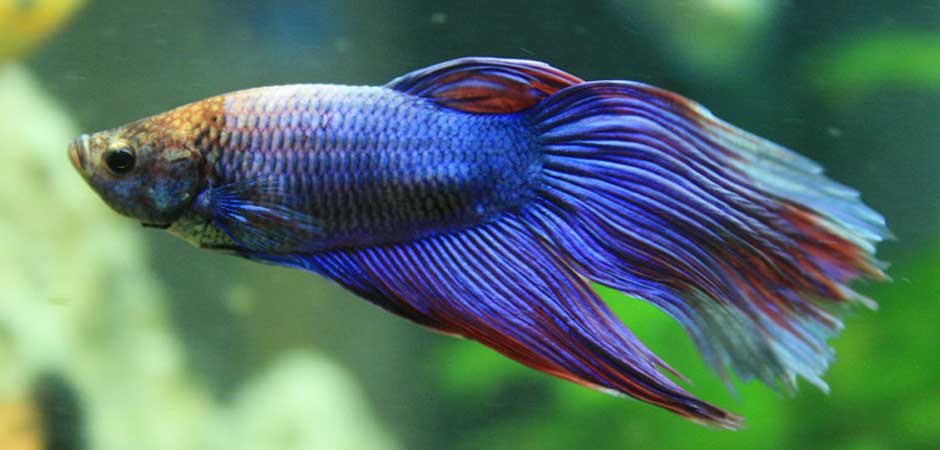
Photo credit: bettafish.org
After making sure that the tank is clean, you have to start caring for your betta.
What you see below is a checklist that every pet fish owner should follow.
- Scales – they need to be smooth.
- Color – it should be clear and bright.
- Quick movements – happy, healthy fish are fond of showing off.
- Fins – without any holes or tears.
Increasing the lifespan of a betta fish in captivity is not difficult if you keep a close eye on them. With bubbles forming on the water’s surface you can rest assured that your pet is happy and healthy.
4. Proper diet
These types of fish have a normal appetite. When you feed them nutritious frozen or fresh foods, they tend to grow fast. But that doesn’t mean that betta fish don’t enjoy tasty treats. These include small crustaceans, insects, and worms.
If you spot symptoms of constipation or body swelling, it means you need to stop feeding the fish for a few days. And when you start feeding again, provide just live food. This particular practice contributes to improving the condition of the fish.
Once your betta gets better, reduce the quantity of food to prevent all symptoms of constipation.
Let me tell you more about feeding betta fish. For them, small meals work just fine. But if that doesn’t fit your schedule, then feed the fish twice a day. But make sure that you provide enough food each time.
After feeding, eliminate the uneaten remnants from the aquarium. Otherwise, they might affect the health of the betta fish in the long run.
5. Look for unusual signs
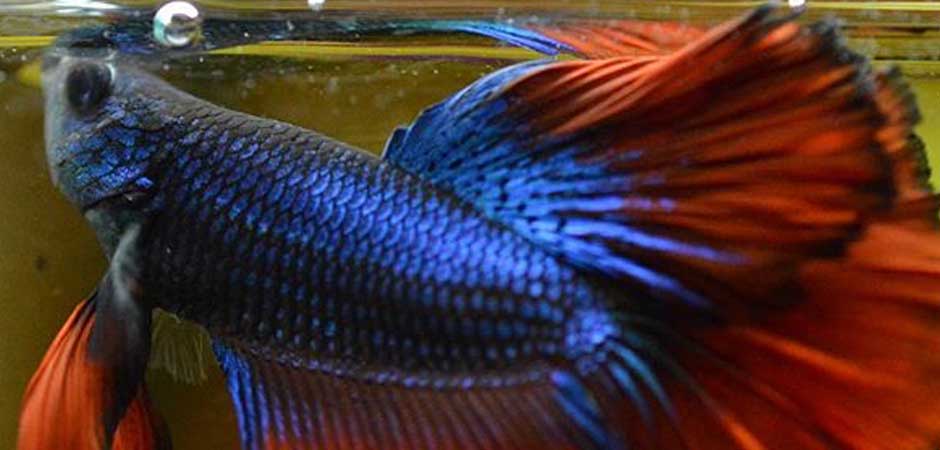
Photo credit: blog.pawedin.com
Typically, betta fish like to swim near the top of every tank. At such times, if you find one floating, it means danger.
No matter how hard you try, dealing with an occasional sick or injured fish is inevitable. So I’ve listed a few unusual behavior patterns of a sick fish.
- Clamped fins.
- Swimming in a bizarre pattern.
- Reaching the top for air constantly.
- Hiding a tad too much.
- Scratching the body against tank accessories.
- Trembling or shaking.
These symptoms are also associated with cotton wool disease, velvet or ich. All the conditions require you to use over-the-counter medication that contains malachite green. You can add this along with aquarium salt to the betta fish tank.
But it’s best to get in touch with your vet or the local pet store you got the fish from before opting for any treatment.
So now you know how to help a betta fish live longer, it’s time to put the instructions into play!
After weighing all your options, you decided to get a betta fish. And that was an excellent choice because the species are not only beautiful but also quite intelligent. They can learn how to do tricks and recognize the owner as well, which is all the more reason to help your beta fish live longer.
Do you have any other valuable tips to add? If you have one of the oldest betta fish in your tank, please do share your stories with us here. Your comments and feedback are welcome, too!
I hope you do whatever it takes to provide your betta fish with a healthy and happy life.
Do come back again soon. And thank you for reading!
Featured image courtesy of TheSpruce.com
Sources
- http://www.petmd.com/fish/care/evr_fi_how-to-take-care-of-betta-fish
- http://www.petful.com/misc/tips-for-raising-betta-fish/
- http://small-pets.lovetoknow.com/betta-fish-care-faq

